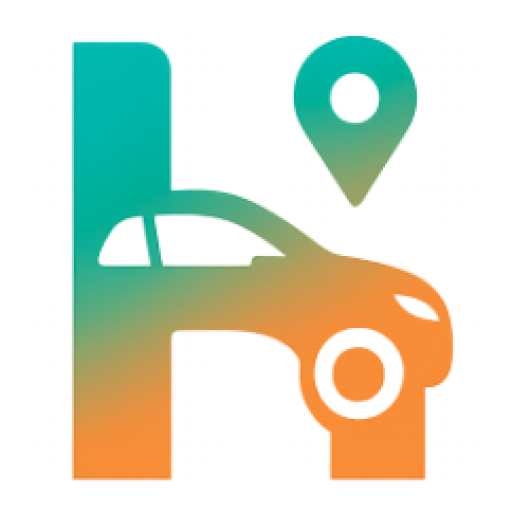В стремительно развивающейся автомобильной индустрии мало кому удалось добиться такого же быстрого и заметного успеха, как BYD. Этот китайский автопроизводитель стал лидером в производстве электромобилей и привлёк к себе внимание всего мира. Но что же такое BYD и что выделяет его на конкурентной автомобильной арене? Давайте углубимся в историю, инновации и будущее этого интригующего бренда.
Происхождение BYD
Компания BYD, название которой расшифровывается как «Build Your Dreams» (Построй свою мечту), была основана в 1995 году. Изначально она занималась производством аккумуляторов в Шэньчжэне (Китай). Компания быстро стала одним из крупнейших производителей аккумуляторных батарей в мире, обслуживая различные отрасли, включая бытовую электронику и телекоммуникации. Однако в начале 2000-х годов BYD сделала стратегический поворот в автомобильный сектор, используя свой опыт в области аккумуляторных технологий для проектирования и производства электромобилей.
Эволюция BYD в автомобильном секторе
Выход BYD на автомобильный рынок начался с традиционных транспортных средств с бензиновым двигателем. Однако, осознавая глобальный переход к экологически чистым перевозкам, компания вскоре переключила свое внимание на электромобили. К 2008 году BYD выпустила F3e, один из первых в Китае серийных электромобилей, что ознаменовало начало ее приверженности экологически чистым технологиям.
Сегодня BYD — не просто участник рынка электромобилей; это лидер. Бренд трансформировал свою линейку продукции, включив в нее широкий спектр электромобилей, автобусов и грузовиков. Делая акцент на инновациях, BYD вкладывает значительные средства в исследования и разработки, создавая передовые технологии, такие как аккумулятор Blade, повышающий безопасность и эффективность.
Глобальное присутствие и влияние
Хотя изначально компания BYD была сосредоточена на китайском рынке, ее амбиции всегда были глобальными. Бренд расширил свое присутствие во многих странах, включая США, Великобританию и несколько европейских государств. Электробусы BYD уже курсируют в городах по всему миру, демонстрируя приверженность бренда решениям в области устойчивого общественного транспорта.
В 2022 году компания BYD обогнала Tesla и стала крупнейшим в мире продавцом электромобилей, что свидетельствует о ее растущем влиянии и растущем спросе на экологичный транспорт. Поскольку электромобили становятся краеугольным камнем современных автомобильных стратегий, BYD имеет все возможности извлечь выгоду из этой тенденции.
Инновационные технологии и продукты
Инновации BYD выходят за рамки электромобилей. Компания находится на переднем крае разработки решений для хранения энергии, солнечной энергетики и электрического общественного транспорта. Такие известные модели, как BYD Tang, Han и Dolphin, предлагают потребителям сочетание производительности, роскоши и экологичности, удовлетворяя широкий спектр предпочтений и бюджетов.
Более того, приверженность BYD принципам вертикальной интеграции позволяет компании контролировать большую часть своей цепочки поставок — от производства аккумуляторов до сборки автомобилей. Это не только повышает эффективность, но и гарантирует, что качество продукции соответствует самым высоким стандартам.
Проблемы и перспективы на будущее
Несмотря на впечатляющий рост, BYD сталкивается с такими проблемами, как растущая конкуренция со стороны известных автопроизводителей, переходящих на электромобили, и нормативные препятствия на различных рынках. Однако проактивный подход бренда к инновациям и устойчивому развитию обеспечивает ему хорошие позиции в будущем.
Поскольку правительства по всему миру продвигают более экологичную политику, а потребители склоняются к экологически чистым вариантам, BYD готов сыграть значительную роль в формировании будущего транспорта. С планами по дальнейшему расширению ассортимента продукции и усилению своего глобального присутствия BYD является брендом, за которым стоит следить в ближайшие годы.
BYD — это больше, чем просто автомобильный бренд. Он воплощает в себе видение устойчивого будущего. Пройдя путь от скромного производителя аккумуляторов до мирового лидера в производстве электромобилей, BYD успешно преодолел все сложности автомобильной промышленности. По мере того, как мир движется к более чистой энергетике и транспорту, BYD находится в авангарде, готовый возглавить этот процесс.
Приверженность BYD принципам устойчивого развития
В то время как мир борется с изменением климата и острой необходимостью внедрения устойчивых методов, миссия BYD актуальна как никогда. Компания уделяет первостепенное внимание не только производству электромобилей, но и интеграции решений в области возобновляемой энергии. Солнечные панели и системы накопления энергии BYD предназначены для совместной работы с электромобилями, создавая целостную экосистему, способствующую использованию экологически чистой энергии. Это обязательство отражает более широкое видение, которое выходит за рамки транспорта и направлено на создание устойчивых сообществ и снижение зависимости от ископаемого топлива.
Достижения в области аккумуляторных технологий
В основе успеха BYD лежит новаторская работа в области аккумуляторных технологий. Внедрение аккумулятора Blade представляет собой значительный шаг вперед, предлагая повышенную безопасность, более длительный срок службы и улучшенную плотность энергии по сравнению с традиционными литий-ионными аккумуляторами. Это нововведение не только повышает производительность электромобилей BYD, но и устанавливает новый отраслевой стандарт. Компания вложила значительные средства в исследования и разработки, гарантируя себе лидирующие позиции в области аккумуляторных технологий, что имеет решающее значение для будущего электромобильности.
Глобальное партнерство и сотрудничество
Компания BYD понимает, что сотрудничество является ключом к развитию инноваций и расширению своего присутствия. Компания сформировала стратегические партнерства с различными глобальными организациями, включая правительства и корпорации, для продвижения решений в области электрической мобильности. Например, сотрудничество с городами в целях электрификации систем общественного транспорта демонстрирует стремление BYD сделать городскую среду более устойчивой. Благодаря совместной работе эти партнерства способствуют более широкому внедрению электромобилей, способствуя более комплексному подходу к устойчивому транспорту.
Выход на новые рынки
Спрос на электромобили стремительно растёт, и компания BYD прекрасно осознаёт возможности, которые открывают развивающиеся рынки. Стратегия расширения бренда включает выход на рынки стран, где инфраструктура электромобилей всё ещё развивается, но ожидается быстрый рост электромобильности. Этот проактивный подход позволяет BYD занять уникальную позицию, позволяющую влиять на траекторию внедрения электромобилей во всём мире, особенно в регионах, где потребность в экологически чистых транспортных решениях становится всё более острой.
Проблемы впереди
Несмотря на впечатляющую траекторию развития, BYD не обходится без трудностей. Сбои в глобальных цепочках поставок, особенно в полупроводниковой промышленности, затронули многих автопроизводителей, включая BYD. Кроме того, бренд сталкивается с жесткой конкуренцией как со стороны существующих игроков, так и со стороны новых участников рынка электромобилей. По мере того, как рынок становится все более насыщенным, BYD необходимо будет продолжать внедрять инновации и совершенствовать свои предложения, чтобы сохранить свое конкурентное преимущество.
Взгляд в будущее
Заглядывая в будущее, мы видим, что дорожная карта BYD полна амбициозных целей. Компания планирует и дальше расширять линейку электромобилей, выпуская модели, которые обещают сочетать в себе роскошь, производительность и экологичность. Более того, BYD инвестирует в технологии автономного вождения, стремясь кардинально изменить не только то, как мы водим, но и то, как мы воспринимаем транспорт в целом.
В мире, который все больше ориентируется на устойчивое развитие, BYD не просто производит автомобили; он создает будущее, в котором мобильность чище, умнее и доступнее. Благодаря своей непоколебимой приверженности инновациям, охране окружающей среды и удовлетворенности клиентов, BYD готов оставаться значимым игроком в автомобильной промышленности еще долгие годы.

